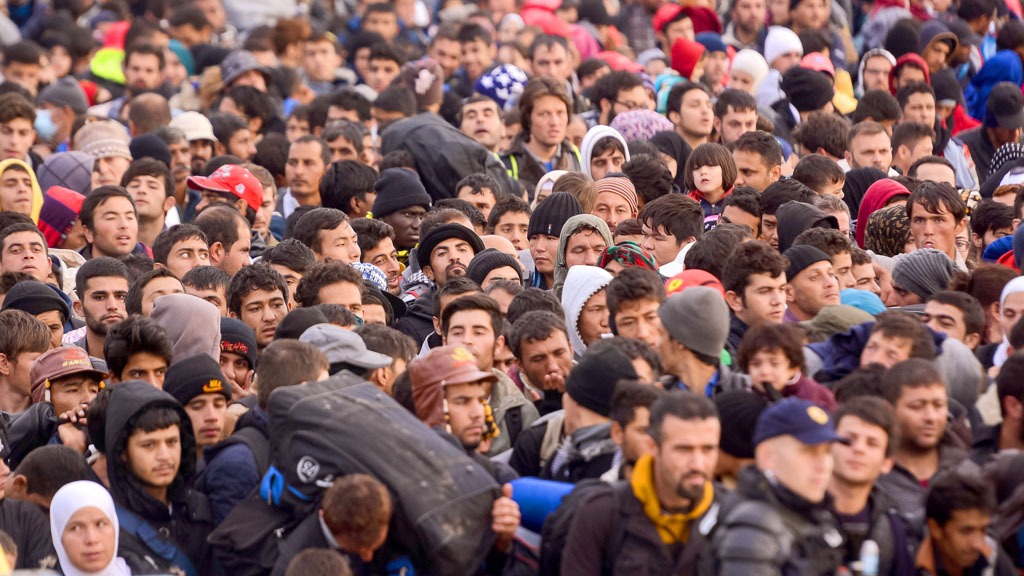By UME
The 2015 migration crisis polarised political opinion in Europe more than ever. While the Western member states of the European Union initially propagated the admission of uncontrolled masses of foreign culture in the sense of the culture of welcome, the Central European member states – above all Hungary – pursued a consistent anti-migration policy. Even though the coronavirus epidemic has broken the momentum of the masses wanting to emigrate to Europe, migration has increased again in the past year, which is a constant threat.
The latest analysis by the Hungarian Institute for the 21st Century looks at the events of recent months around the world that could usher in a new wave of migration.
Ten years after the beginning of the events known as the “Arab Spring”, the export of democracy to the countries of North Africa and the Middle East has proved to be a complete failure.
Attempts at democracy supported by Western powers, but not necessarily supported by the local population, have destabilized much of the southern and eastern Mediterranean countries, making the region a hotbed of Islamist extremism and human smugglers.
To make matters worse, the situation is also unsettled outside Europe’s immediate neighbourhood. At present, the instability caused by the civil war in Ethiopia could be one of the biggest causes of migration risk in Europe, as the fighting has killed thousands and displaced two million people.
The increase in migratory pressure is also evident in the arrival of more than 20,000 migrants in the Canary Islands, which belong to Spain, mainly from the North African coast.
The migrants had hoped to be automatically admitted to the EU if they applied for admission to an area that is administratively part of Spain. Since then, this has not happened, but the local population is angered by the migrants’ non-compliance with the regulations imposed by the coronavirus epidemic, and clashes are becoming more frequent, so it is no exaggeration to say that the islands have become a “new Lesvos”.
Similar incidents could become more frequent as the situation in Afghanistan deteriorates and the number of people leaving the country increases.
The increasing migration trend is also reflected in the fact that 500-2000 Afghans arrive in Turkey every day. In addition, migratory pressure towards Central Asian countries is increasing; the Tajik authorities expect 30,000 refugees.
The stability of these countries is further undermined by the fact that the consequences of the coronavirus epidemic exacerbate the socio-economic crises they have already faced.
Restrictions and interruptions in retail chains have further worsened the economic situation in regions that are already often on the brink of survival, and the difficulties in securing livelihoods increase the willingness to migrate.
The situation is also deteriorating at the Hungarian border
Among migration routes, the Central Mediterranean was the most polluted in 2020, with 28% of all migrants trying to reach Europe, while the second heaviest burden was the Western Balkans, where 22% tried to cross illegally. In this context, the migratory pressure on Hungary has also been steadily increasing since 2018, as shown by the fact that the Hungarian border police arrested only 89 illegal cross-border commuters in July comparison in 2018, 208 in 2019, 798 in 2020 and 1938 in 2021.
This year, The Hungarian authorities have arrested more than 54,000 illegal immigrants, compared to only 10,000 in the same period last year.
Although migratory pressure is increasing, the Hungarian left still does not take a clear position on border protection. In fact, Gergely Karácsony hinted in an interview with the German liberal-oriented “Zeit” that
the opposition parties would welcome migrants, but would not be able to campaign openly on this issue, as they would not win elections.
He also said that the Hungarian government is creating “non-existent” enemies such as the LGBTQ lobby, George Soros or migrants.
Reversal of trends?
While the Hungarian left is still unable to recognize the dangers of migration, the momentum of the original welcoming culture in the European Union seems to be reversing. At the end of July, Austrian Interior Minister Karl Nehammer criticized Hungary for not adequately (!) protecting its borders against illegal border crossings. In this context, it should be remembered that at the height of the migration crisis in 2015, when Austria condemned Hungary for closing the border and then did the same, Chancellor Werner Faymann said that it was not building a border fence, but a “gate with side wings”.
German Chancellor Angela Merkel, who proclaimed a “culture of welcome,” also made a U-turn, declaring that Germany was no longer willing to take in more Afghans because it had not solved any problems.
Also the Danish Social Democratic (!) Recognizing the problems that migration entails, the government passed a law in early June that makes it easier for the country to deport migrants and sends a clear message that Denmark does not welcome illegal immigrants. Michel Barnier, the European Union’s former chief Brexit negotiator and likely candidate for the French presidency in the 2022 elections, has called for a three- to five-year moratorium on immigration in France until immigrants are adequately integrated and a social consensus on migration is reached. This is in line with the proposal of Viktor Orbán, who, in view of the pandemic, does not want to allow migration to the European Union for two years.
From this it can be concluded that Hungary’s right to deal with the migration crisis is being recognised in an increasing number of EU countries, even if this is not explicitly stated.
Once again, Hungary’s consistent policy has set an example for the entire EU, which is evident, if not in words, then in the changes in policy.
Source: Magyar Nemzet

